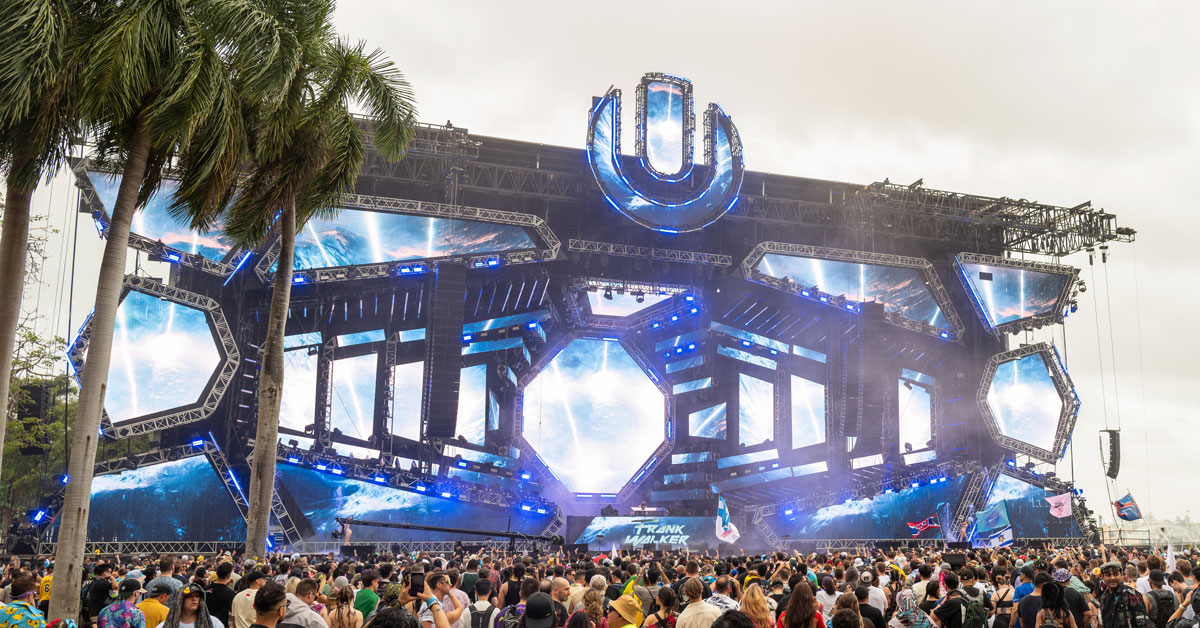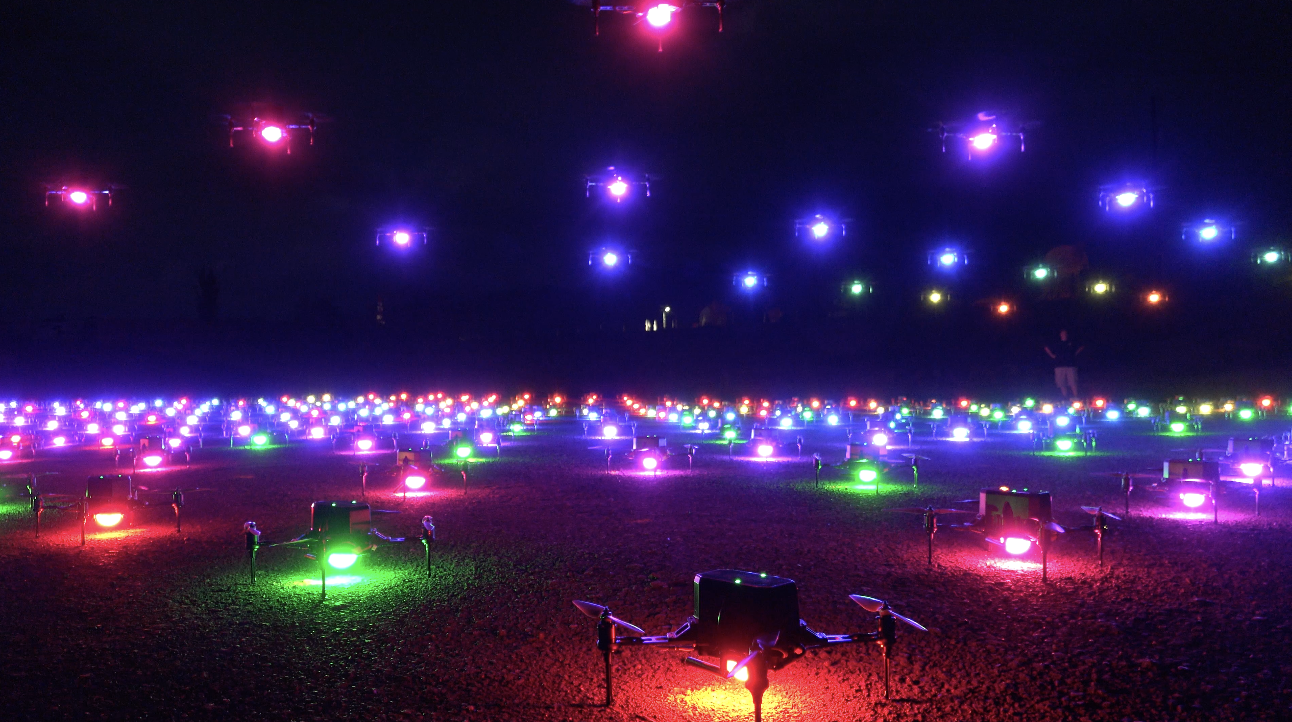MEMPHIS, TN – Thunderstorms had passed through Memphis the morning May 1, so there was a feeling of gratitude in the air, along with sunshine, when the three-day Beale Street Music Festival got back underway on its second day. Close to 40,000 music fans filled Tom Lee Park along the banks of the Mississippi. Even with the threat of further stormy weather coming in later than evening, it was easy to dismiss the risk. The air was calm, the music was pleasant, and the biggest threat from the sky seemed to be a bit of light drizzle.
But as the skies darkened, Scott Chamryk with Premier Global Productions and others were getting updates from an on-site command post set up by Memphis in May (MIM), the festival organization.
The radar forecasts went from uncertain to ominous. On-site weather trackers were particularly concerned by two storm cells forming over eastern and southeastern Arkansas. Both had tornado-producing potential.
By about 9:15 p.m., one of the two cells was looking as though it could pose a serious threat to the festival site, according to Jim Holt, MIM president and CEO.
"We assembled all key parties at our event site command post at 9:30 p.m.," Holt says. "At approximately 9:45 p.m., we made the decision that for safety's sake, it was necessary to close the event and evacuate the park, as the cell was approximately 45 minutes away."
MIM's evacuation procedures were put into effect, with prepared emergency announcements activated on the P.A. system, and tornado sirens could be heard as well.
By now some light drizzle was falling from the night sky, but the air was still practically windless, so while there was a lot of commotion, there was no real sense of panic.
As crew members scrambled to protect gear in case the drizzle turned into a downpour, others were motivated by a clear understanding that this wasn't just a drill. There was the real potential for something coming from the sky that was a lot worse than mere rain.
"It was a chaotic moment," recalls Chamryk, who was working with other crew members in an effort to quickly lower Premier Global's three stage roofs to minimize the risk of flying debris.
Peter Moshay, production manager with Hall & Oates, which had been three songs into their show on the Sam's Town stage when the festival was cancelled, heard the sirens. But he says that, judging from the calm air, it seemed that any danger from above was still a comfortable distance away.
Suddenly, however, a different danger emerged.
"The lighting crew decided it was a good idea to drop hot (lit with power) lighting trusses to the deck while we were still packing up the band gear. Then someone thought it was a even better idea to drop the roof while we were all on stage. Nobody," he says, "was watching the roof as it came down.
"One motor did not engage and the roof twisted and the motor broke loose dropping the roof onto us. Luckily, a few of us who were onstage at the time hit the deck and were spared as the truss stopped on the sidefills and other pipes…we got away with scrapes and bruises and a sprains.
"All the time that they were dropping trusses and the roof, we were screaming to stop, as they were dropping steel on us as we were packing up onstage."
Moshay blames the situation on a lack of clear communication and a lack of proper stage management. "Had there been a professional stage manager at the event, this would have not happened."
MIM's Holt, who has since met with the Sam's Town stage coordinator, Lee Callendar, and the stage manager, Brent Rhodes, is confident that MIM's evacuation plan, including orders for everyone to seek shelter in tour buses and vehicles, had been carried out properly.
"Apparently," Holt noted, "as is often the case, certain show personnel at the stage chose to disregard the evacuation order, and opted to secure their equipment before exiting the park."
Moshay, however, says he took the evacuation orders to mean the fans, not the crew. In his words, it was "every man for himself," without clear guidance from organizers.
Holt maintains, however, that Callendar and Rhodes "had informed all personnel, staff and vendors at the stage of the weather situation, and everyone involved was aware of the need to evacuate with very clear directives."
Holt acknowledges, however, that "other show personnel from vendors for sound, lighting and staging companies also elected to delay their evacuation to secure their equipment and gear before exiting the park."
Chamryk, Holt says, "manned the stage deck to clear any remaining personnel, while Premier Global Productions' Clyde Strongarm began lowering the roof."
And while Chamryk insists that "there was no one on the stage" when the roof was being lowered, the bruises and sprains sustained by Moshay and others testify to the fact that they were clearly close enough to be in harm's way.
According to Holt, "personnel from the sound and lighting companies as well as tour personnel remained on the stage wings securing equipment, contrary to evacuation orders. While lowering the roof, a motor failure or slippage occurred, resulting in the front corner of roof falling between 6 and 12 feet crashing into some side fill cabinets on the stage deck."
Mike Borne, president of Allstar Audio, was also not at the Sam's Town stage at the time of the accident but was at the festival. Some of his company's gear was damaged in the Sam's Town stage roof mishap, and Moonshine Lighting also reported gear damage. Borne's account corroborates Holt's report, but doesn't deviate entirely from Moshay's take on what happened, either.
According to Borne, "there were stage managers assigned to all the stages on site," and adds that "all of the bands and crew had to check in with these stage managers as they arrived." He also maintains that, under the circumstances, it might have been safer to keep the fixtures lit rather than lower the lighting gear in a darker environment.
"During the safeguarding and battening down of the gear, and subsequent lowering of the roof, an equipment malfunction caused one of the roof hoists to fail, allowing the downstage right corner of the roof to collapse about seven to 10 feet onto our sidefill speakers, and finally rest on the downstage lighting truss," Borne says. "It did not, however, fall all the way from trim height."
In the final analysis, Borne says, the festival's Sam's Town stage clearly dodged a bullet. "I think it was a relatively close call, and we were very fortunate, to say the least." Holt also noted that "there were no serious outcomes as a result of the mishap, but Mr. Moshay and one of his tour personnel were treated for some minor injuries."
As far as dodging a bullet, the same could be said for the festival as a whole. As Holt notes, "the storm tracked along the western side of the Mississippi River and did not hit our festival site. The storm was reported to have had 127 mile-an-hour sustained winds."
If everyone agrees that things could have been worse, Moshay, who sustained a minor injury to his hand, argues that things could have – and should have – gone smoother. He also voices skepticism that the damaged roof was fit for continued use. It was put into service for the Sam's Town stage the next day, where Earth, Wind and Fire and others performed.
Premier Global Productions business manager Brian Andrews counters that view, insisting that there was a thorough inspection for weakness and cracks after the incident. "We're talking about steel here, not aluminum," Andrews says. "There were no cracks."
MIM's Holt also notes that "all equipment was completely inspected and deemed operational, with the exception of the roof motor, which was replaced. The stage roof," Holt adds, "would not have been utilized if there were any question of safety."
If the Memphis and the Beale Street Festival both emerged relatively unscathed – particularly in light of the more extensive flooding problems caused by the same storm system to the Nashville area – the mishap on May Day underscores an enduring conflict for an industry that tries to embrace "Safety First" as tightly as "The Show Must Go On."
Everybody would agree that "gear can be replaced, but lives can't." But if "Gear vs. Life" is a no-brainer, those working in the live entertainment industry will always be faced with a shifting array of risk-benefit scenarios – gray areas – where risk creeps in.
That's why MIM decided to go ahead and stage the Beale Street Music Festival in the first place, even though it was conceivable – if unlikely – that it could be torn apart with a direct hit from a twister.
That's also why Moshay and crew were busy packing up gear, with the wail of tornado sirens in the distance, instead of simply leaving the gear behind until the risk of severe weather had passed.
If the only sure way to eliminate all risk from injury is to lock yourself in a padded cell, a more sensible solution would be the "continuous improvement" approach – have an emergency plan in place, and try to reinforce the weak spots when troubles emerge.
Holt indicates that MIM is striving to do just that.
"We have an extensive emergency plan that operated very well in evacuating the public from the festival site; however, the incidents of May 1 will result in a re-examination of the policies and procedures within our plan, particularly as it pertains to compliance to evacuation orders by vendor and show personnel."



